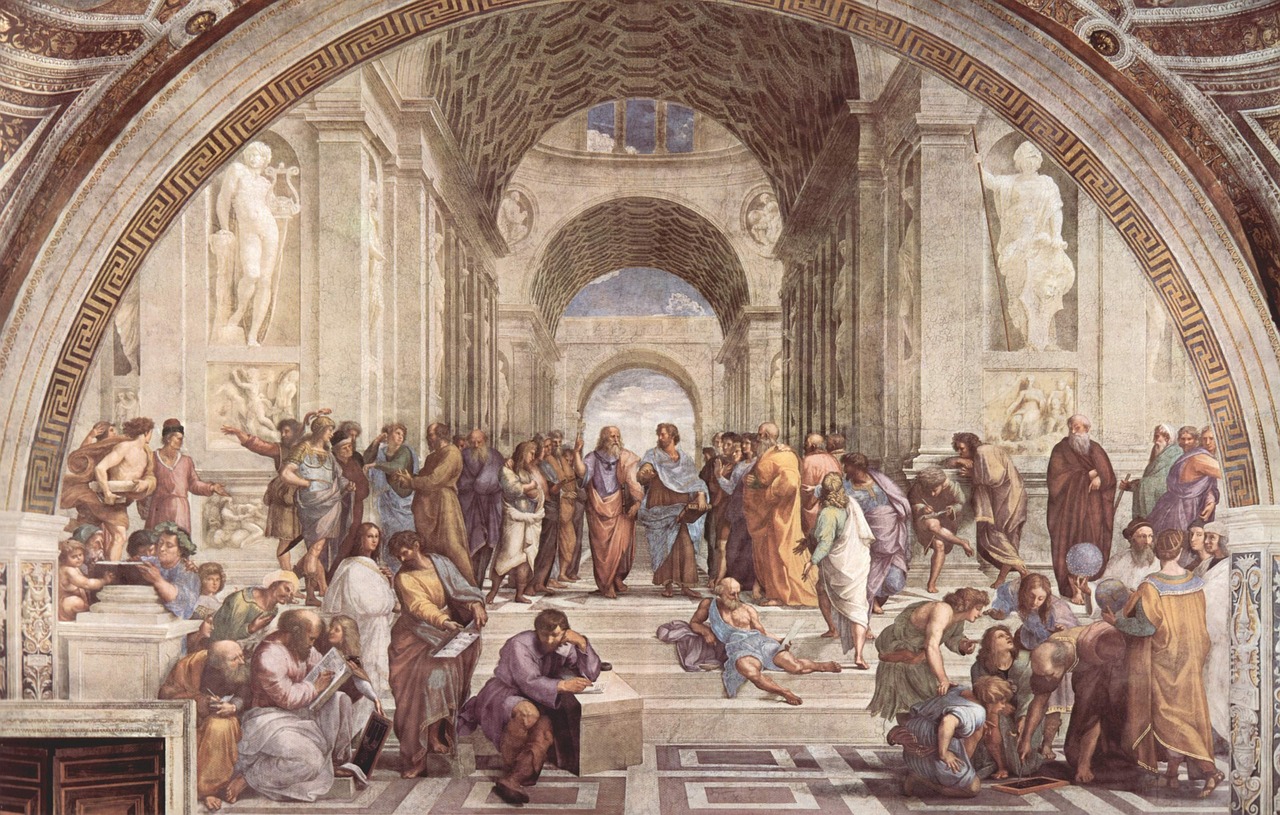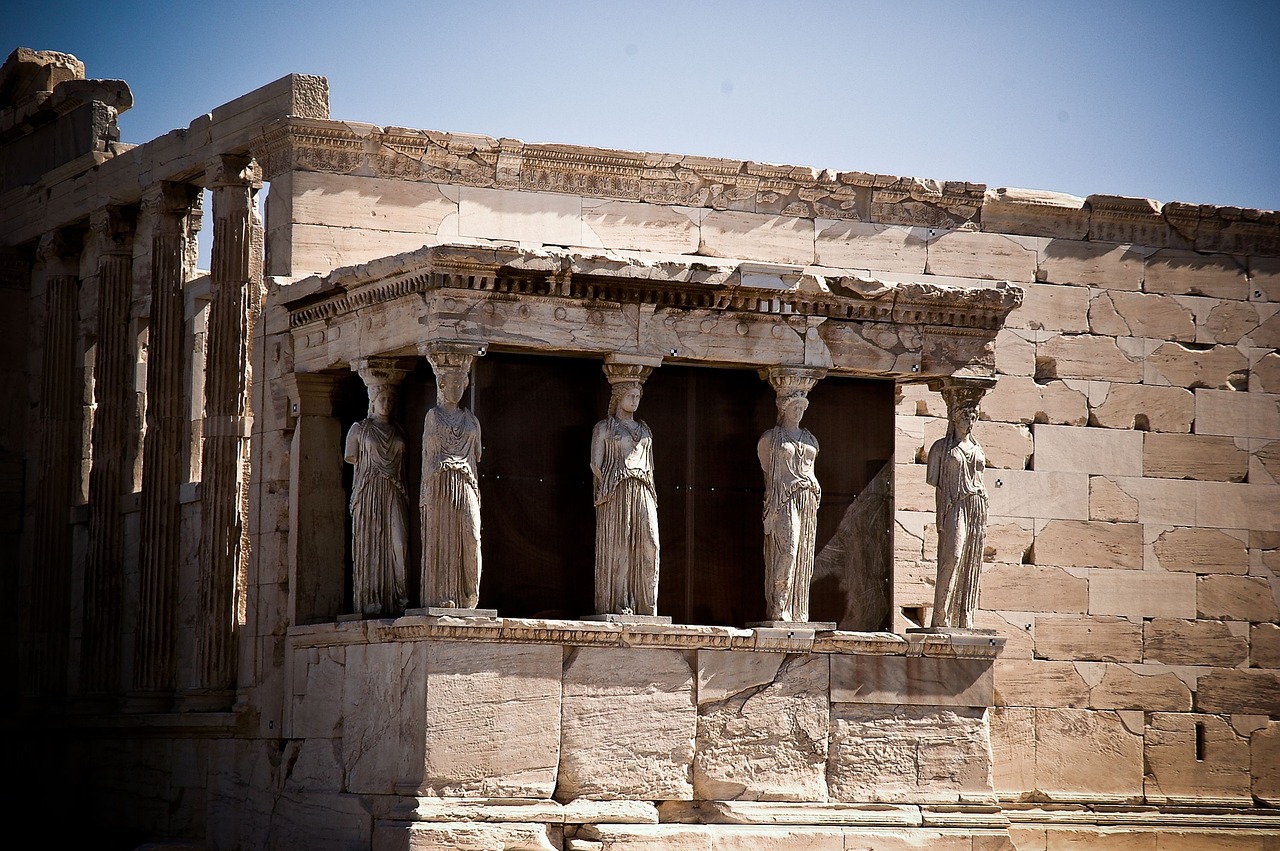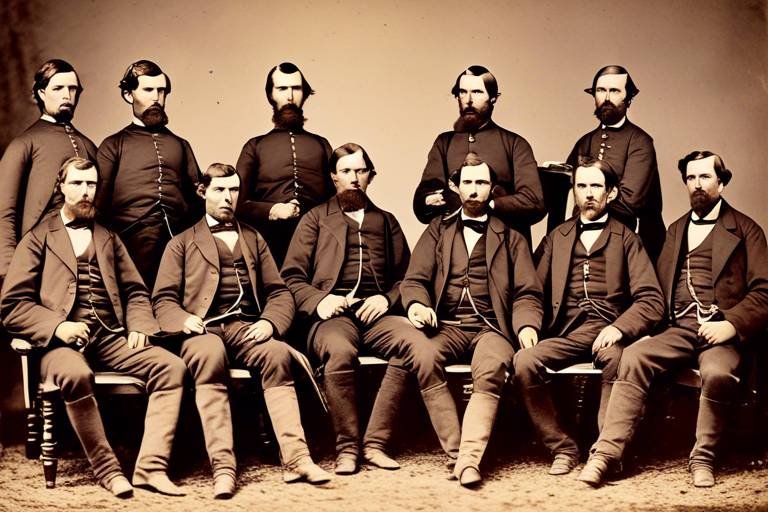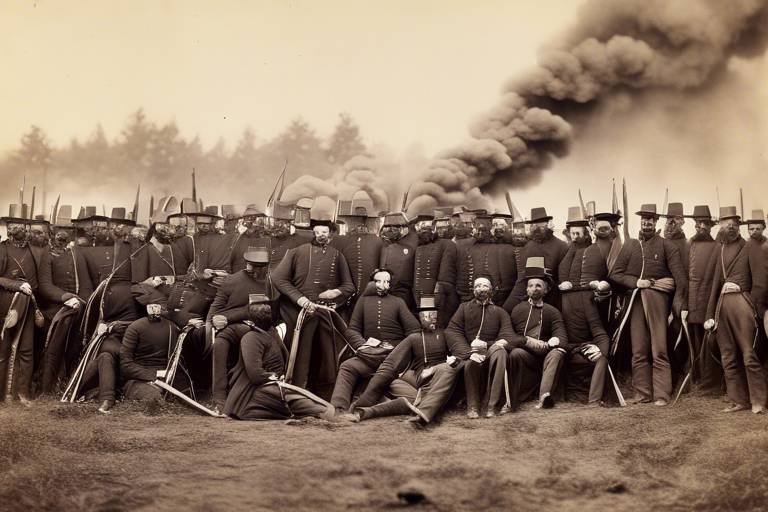The Influence of Ancient Greece on Political Theory
When delving into the realm of political theory, one cannot ignore the profound influence of Ancient Greece. The roots of modern political ideologies can be traced back to the rich tapestry of ideas woven by the ancient Greeks. Concepts such as democracy, citizenship, and the role of the state have permeated through time, shaping the very foundations of governance as we know it today.

Ancient Greek Political Thought
Ancient Greek political thought holds a revered place in the annals of political philosophy, laying the groundwork for many modern governance systems. The intellectual giants of Ancient Greece, such as Plato, Aristotle, and Socrates, delved deep into the nature of politics, justice, and the ideal state. Their writings and teachings continue to influence contemporary political ideologies, shaping our understanding of democracy, citizenship, and the role of government.
Plato, in his seminal work "The Republic," explored the concept of an ideal state governed by philosopher-kings. He emphasized the importance of justice, the division of labor, and the harmony of the individual and the state. Aristotle, a student of Plato, further refined these ideas, proposing a mixed form of government that balanced the interests of the rich and the poor. Socrates, known for his Socratic method of questioning, challenged conventional wisdom and encouraged critical thinking in political discourse.
The Ancient Greeks viewed politics as a moral and ethical endeavor, believing that the purpose of the state was to promote the common good. They recognized the importance of civic virtue, active participation in public affairs, and the cultivation of a well-ordered society. These principles laid the foundation for the development of democratic governance and the concept of citizenship as a shared responsibility towards the polis.
Central to Ancient Greek political thought was the idea of polis, or city-state, as the primary unit of political organization. The polis served as a community where citizens engaged in decision-making, debated policies, and participated in the governance of their city. This direct form of democracy fostered a sense of civic pride and collective identity among the citizens, reinforcing the notion of citizenship as a duty and a privilege.

Greek Democracy and Citizenship
Greek Democracy and Citizenship in Ancient Greece played a pivotal role in shaping the political landscape of the time. The concept of democracy, originating from the Greek words "demos" (people) and "kratos" (rule), emphasized the power and participation of the citizens in decision-making processes. Unlike modern representative democracies, where elected officials make decisions on behalf of the people, ancient Greek democracy was direct, with citizens directly voting on laws and policies.
Citizenship in Ancient Greece was not universal, as only free adult male citizens who were born in the city-state were granted full rights and responsibilities. Women, slaves, and foreigners were excluded from the political process, highlighting the limitations of democracy in its historical context. However, the idea of citizenship as a status with both rights and duties laid the groundwork for the development of citizenship in modern nation-states.
The city-state, or polis, was the fundamental political unit in Ancient Greece, with each city-state functioning as an independent political entity. The polis served as the center of political, social, and cultural life, where citizens gathered in the agora (public square) to debate and make decisions. This emphasis on civic engagement and participation in governance was a defining feature of Ancient Greek political organization.

The Polis and City-State Governance
The concept of the polis, or city-state, was central to Ancient Greek political organization and governance. In Ancient Greece, the polis was not just a geographical location but a community of citizens who shared common values, laws, and institutions. This unique political structure fostered a sense of civic identity and participation, where citizens were directly involved in decision-making processes that shaped the governance of their city-state.
Within the polis, governance practices varied across different city-states, reflecting a blend of monarchy, oligarchy, and democracy. The structure of the polis allowed for a degree of autonomy and self-governance, with citizens playing an active role in political affairs. This participatory model of governance laid the foundation for the development of democratic principles and the idea of civic duty.
The polis was not just a political entity but also a cultural and social hub where debates, philosophical discussions, and cultural activities flourished. It served as a microcosm of society, where the ideals of justice, equality, and civic virtue were upheld and debated. The governance of the polis was deeply intertwined with the daily lives of its citizens, emphasizing the importance of community engagement and collective responsibility.
City-state governance in Ancient Greece was characterized by a balance of power between different institutions and social classes. While some city-states were ruled by a single individual (monarchy), others were governed by a small group of elites (oligarchy). The emergence of democracy in city-states like Athens marked a significant shift towards more inclusive and participatory forms of governance, where all eligible citizens had a voice in political decision-making.
The polis also served as a platform for the development of legal systems, administrative structures, and public infrastructure. Laws were enacted and enforced by elected officials, ensuring order and justice within the city-state. Civic engagement was not just a privilege but a duty for citizens, who were expected to contribute to the well-being of the community through active participation in political processes.

Philosophical Foundations of Governance
Philosophical Foundations of Governance in Ancient Greece were deeply rooted in the ideas of justice, equality, and the role of the state in promoting the common good. Philosophers like Plato and Aristotle delved into the essence of governance, pondering the best ways to organize society for the benefit of all. Plato, in his work "The Republic," envisioned a just society led by philosopher-kings who would prioritize the well-being of the community over personal gain. This concept of a harmonious state governed by reason and virtue continues to influence political thought to this day.
Aristotle, on the other hand, emphasized the importance of the rule of law and the need for a balanced constitution that would prevent the concentration of power in the hands of a few. He believed that a well-ordered state should aim for the common good, balancing the interests of the individual with those of the community as a whole. Aristotle's emphasis on moderation and the cultivation of virtues in both leaders and citizens laid the groundwork for ethical governance principles that are still relevant in contemporary politics.
The philosophical foundations of governance in Ancient Greece also revolved around the idea of civic duty and active participation in the political process. Citizenship was not merely a legal status but a moral responsibility to contribute to the well-being of the polis. The concept of political engagement as a virtue, rather than a burden, shaped the political culture of Ancient Greece and served as a model for democratic governance in subsequent centuries.

Aristotle's Political Theory
Aristotle, one of the most influential philosophers in Ancient Greece, delved deeply into political theory, leaving a lasting impact on governance practices. His political philosophy emphasized the importance of finding the best form of government that would lead to the common good of society. Aristotle believed that the rule of law was essential for a stable and just society, advocating for a system where laws were applied equally to all citizens.
Central to Aristotle's political theory was the concept of the polis, or city-state, as the ideal political unit. He argued that the polis was the natural community where individuals could achieve their full potential as citizens. In his work, "Politics," Aristotle explored various forms of government, including democracy, oligarchy, and tyranny, analyzing their strengths and weaknesses in promoting political stability and justice.
A key aspect of Aristotle's political philosophy was his belief in the importance of virtue and ethics in governance. He argued that a virtuous leader, guided by moral principles, was crucial for the well-being of the state. According to Aristotle, the ultimate goal of politics was to create a society where individuals could live a good life in harmony with others, emphasizing the need for education and civic participation in achieving this ideal.

Oligarchy and Tyranny in Ancient Greece
Oligarchy and tyranny were prevalent forms of government in Ancient Greece, often leading to political instability and social unrest. Oligarchy, characterized by a small group of elite individuals holding power, was common in city-states like Sparta, where the ruling class maintained control through strict social hierarchy and militaristic values. On the other hand, tyranny emerged as a result of popular discontent with existing political structures, leading to the rise of authoritarian rulers who often seized power through force or manipulation.
In oligarchies, power was concentrated in the hands of a few wealthy families or aristocrats, resulting in limited political participation for the broader citizenry. This exclusion often led to resentment among the common people, contributing to internal conflicts and power struggles within the ruling elite. The instability caused by oligarchic rule paved the way for the emergence of tyrants, who presented themselves as champions of the people but often resorted to oppressive tactics to maintain control.
Despite their negative connotations, oligarchy and tyranny played significant roles in shaping the political landscape of Ancient Greece. They served as cautionary examples of the dangers of unchecked power and the importance of balancing authority with accountability. The downfall of many oligarchies and tyrannies underscored the need for political systems that prioritize the welfare of all citizens and uphold principles of justice and equality.

Legacy of Ancient Greek Political Thought
Ancient Greek political thought has left a profound and enduring legacy that continues to shape modern political theory and governance practices. The concepts and ideas developed in Ancient Greece by philosophers, statesmen, and citizens have had a lasting impact on the way we understand and practice politics today. One of the most significant legacies of Ancient Greek political thought is the concept of democracy, which originated in Athens and laid the foundation for democratic systems around the world.
The emphasis on civic participation, the rule of law, and the importance of individual rights and freedoms can be traced back to Ancient Greek political thought. Philosophers like Plato and Aristotle explored the nature of justice, the role of the state in promoting the common good, and the ideal forms of government, which have influenced political thinkers for centuries.
Ancient Greek political thought also introduced the concept of citizenship, defining the rights and responsibilities of individuals within the community. The idea of active citizenship, where citizens are expected to participate in the political life of the city-state, has influenced modern notions of civic engagement and democratic governance.
Moreover, the legacy of Ancient Greek political thought can be seen in the structure of modern political institutions, the separation of powers, and the checks and balances that govern the relationship between the state and its citizens. The enduring relevance of Ancient Greek political ideas highlights the timeless nature of fundamental political concepts such as justice, equality, and the rule of law.

Comparative Analysis with Modern Political Systems
When we delve into a comparative analysis between the political systems of Ancient Greece and modern governance models, we uncover a fascinating interplay of ideas that have transcended time and space. The democratic foundations laid by the ancient Greeks have reverberated through the corridors of history, shaping the way societies govern themselves even in the contemporary world. While the direct democracy of Athens might seem a far cry from the representative democracies of today, the essence of citizen participation and decision-making remains a common thread.
One striking parallel between ancient and modern political systems lies in the concept of citizenship. In Ancient Greece, citizenship conferred certain rights and responsibilities upon individuals, enabling them to participate in the political life of the city-state. Similarly, in modern democracies, citizenship grants individuals the right to vote, express their opinions, and engage in civic activities that shape the direction of the nation.
Moreover, the role of the state in promoting the common good was a central tenet of governance in Ancient Greece, a principle that continues to resonate in modern political discourse. The idea that the state should act in the best interests of its citizens, uphold justice, and ensure equality reflects a foundational belief that has endured across centuries.
However, the evolution of modern political systems has also seen significant departures from the practices of Ancient Greece. The scale and complexity of contemporary governance, the rise of bureaucratic structures, and the intricacies of global diplomacy present unique challenges that the ancient city-states did not face. While the spirit of democracy and civic engagement endures, the mechanisms through which these ideals are realized have evolved to meet the demands of a rapidly changing world.
Frequently Asked Questions
- What is the significance of Ancient Greek political thought?
Ancient Greek political thought has had a profound impact on modern political theory and governance practices. Concepts such as democracy, citizenship, and the role of the state originated in Ancient Greece and continue to shape political ideologies worldwide.
- Who were some influential philosophers in Ancient Greek political thought?
Philosophers like Plato, Aristotle, and Socrates were instrumental in shaping Ancient Greek political thought. Their works laid the foundation for many contemporary political ideologies and continue to be studied and referenced in political discourse.
- How did democracy develop in Ancient Greece?
Ancient Greece is often credited as the birthplace of democracy. The concept of democracy evolved in city-states like Athens, where citizens had a direct role in decision-making. This early form of democracy laid the groundwork for modern democratic systems.
- What is the polis in Ancient Greek political organization?
The polis, or city-state, was a central political unit in Ancient Greece. It encompassed the city, surrounding countryside, and citizens who participated in governance. The polis played a crucial role in shaping Ancient Greek political life and civic engagement.
- How does Ancient Greek political thought influence modern governance?
Ancient Greek political thought continues to influence modern governance by emphasizing concepts like justice, equality, and the common good. Ideas from Ancient Greece are reflected in contemporary political structures and debates on the role of the state in society.



















